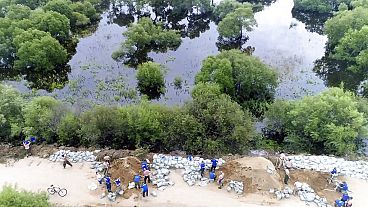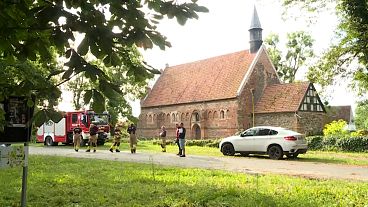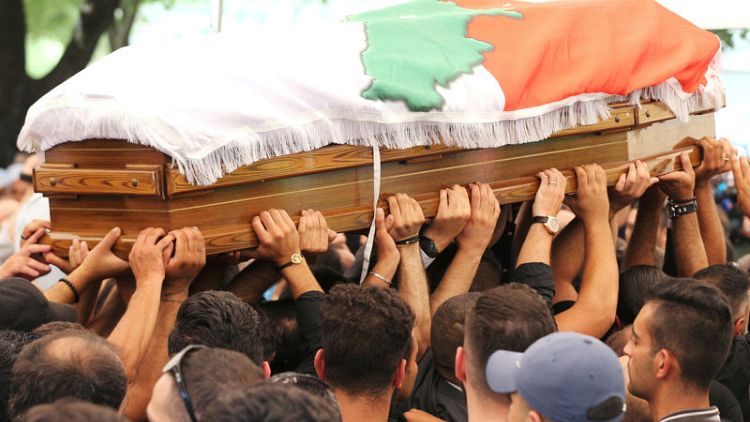By Tom Perry and Laila Bassam
BEIRUT (Reuters) - The political repercussions of a deadly shooting in Lebanon have paralyzed government at a critical moment and risk complicating efforts to enact reforms needed to steer the heavily indebted state away from financial crisis.
Two aides of a government minister were killed in the shooting when his convoy passed through a village in the Chouf mountains a month ago, an incident he declared an assassination attempt by adversaries. They deny the accusation.
With major parties in Lebanon's national unity government involved, Prime Minister Saad al-Hariri has been unable to convene a cabinet. Efforts to mediate a way out of the standoff are deadlocked over which court should hear the case.
The minister involved is Saleh al-Gharib, an ally of Druze politician Talal Arslan who is close to Damascus and enjoys the backing of the heavily armed Shi'ite Hezbollah. Arslan holds the party of Druze leader Walid Jumblatt responsible for the bloodshed.
Jumblatt's party says the incident was an exchange of fire initiated by Gharib's entourage in which two Jumblatt supporters were also wounded. A fierce critic of Syrian President Bashar al-Assad, Jumblatt's party views it as part of a wider campaign to weaken his influence over Lebanon's Druze community.
A senior official told Reuters the paralysis has held up discussions of the 2020 budget, a vital part of efforts to plug gaping holes in the public finances and convince investors the state is finally serious about long-delayed reforms.
"Frankly, we can't stay like this for much longer," said the official, who spoke on condition of anonymity because they were offering a personal assessment of a sensitive situation.
The official said that two credit ratings agencies are due to issue reports on Lebanon in the coming weeks and while a prompt start to cabinet's budget discussions could reflect positively, continued tension may have the opposite impact.
Parliament approved the 2019 budget earlier this month with the aim of slashing the deficit. The International Monetary Fund has called this "an important moment for Lebanon".
After years of backsliding, the impetus to reform has grown due to economic stagnation and a virtual halt in the flow of dollars into Lebanon's banks from abroad. Lebanon has depended on such flows from its diaspora to finance the current account and the state budget deficits.
Cabinet last met on June 27.
DEADLOCK
The Chouf mountains where the June 30 incident occurred was one of the bloodiest theatres of the 1975-90 civil war.
Lebanon's top Christian and Islamic clerics said in a joint statement on Tuesday the incident had "led to the obstruction of government work that is a pressing necessity for political and security stability and economic revival".
Further complicating the picture, the incident has also drawn in President Michel Aoun, a Maronite Christian and the political movement led by his son-in-law, Foreign Minister Gebran Bassil.
They are part of the same political camp as Arslan.
The tensions that day spiralled from protests by Jumblatt supporters against plans by Bassil to visit the Chouf.
The Aounist camp has aligned against Jumblatt, a civil wartime adversary of Aoun, with Defence Minister Elias Bou Saab sharing Gharib's view that the incident was an "ambush".
At a news conference on Monday, Arslan stuck by his demand for the case to be referred to the Judicial Council court and said this must be the first item on the agenda of any cabinet meeting.
Jumblatt has rejected the case's referral to that court.
"There is no clear cut defined criteria on what cases go to this court and which don't, there were several other cases that did not go to this court that were more dangerous," said Rami Rayess, spokesman for Jumblatt's Progressive Socialist Party.
He said Jumblatt had taken steps to resolve the crisis including handing several suspects over to the judiciary, while none had been handed over by the other side.
"We are in a deadlock," he said.
(Writing by Tom Perry; Editing by Angus MacSwan)












